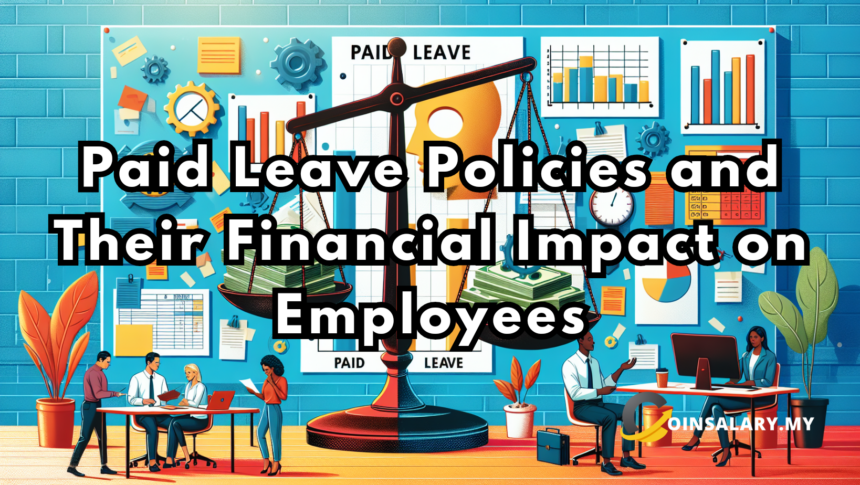Paid leave policies are a fundamental part of modern employment benefits, providing employees with the opportunity to take time off without losing income. These policies, encompassing paid sick leave, vacation, and parental leave, contribute to a healthier work-life balance and increased productivity. However, the financial implications of paid leave policies for employees can be complex, with both positive and negative impacts. In this article, we’ll examine how paid leave affects employees financially and the broader economic benefits.
Understanding Paid Leave Policies
Paid leave policies vary significantly across countries and industries. In general, they include:
- Vacation Leave: Time off for rest and relaxation.
- Sick Leave: Time off to recover from illness.
- Parental Leave: Paid time off for new parents.
- Personal or Family Leave: Time to care for family or personal needs.
In many regions, these leave policies are legally mandated, while in others, they are benefits provided by employers. Such policies are crucial to an employee’s financial security, especially during times when health or personal circumstances require them to step away from work.
Positive Financial Impacts of Paid Leave
- Income Stability
Paid leave provides income stability, allowing employees to manage personal or family health needs without financial strain. For example, sick leave or parental leave ensures that an employee can maintain income during times of illness or major life events, reducing the need for loans or debt. - Improved Financial Health through Reduced Turnover
Employees who have access to paid leave tend to stay longer with a company, reducing turnover rates. For employees, this can mean steady income and potential advancement opportunities. Paid leave policies also contribute to greater job satisfaction, which enhances employees’ financial well-being in the long term. - Improved Productivity and Potential Earnings
Paid leave allows employees to recharge, which often leads to higher productivity when they return to work. Healthier and more focused employees tend to perform better, which can translate to higher earnings through performance-based incentives, raises, or promotions. - Reduced Health-Related Expenses
Paid sick leave encourages employees to rest and recover, reducing the chances of chronic illness or burnout. By addressing health issues promptly, employees can avoid costly medical expenses down the line.
Negative Financial Impacts of Paid Leave Policies on Employees
- Impact on Wage Growth in Certain Industries
In some industries, particularly those with a high prevalence of hourly or temporary workers, offering paid leave may mean employers limit wage increases or other benefits to balance costs. As a result, employees might see slower wage growth, affecting their overall financial advancement. - Limits on Overtime or Commission-Based Earnings
Employees who rely on commission or overtime pay may face reduced income during periods of paid leave. While they receive a basic wage, the loss of additional earnings can impact their financial situation, especially in sectors like sales or hospitality where commission is a significant portion of total income. - Restrictions on Leave Entitlement for New Employees
New employees often have limited access to paid leave during probationary periods. This can create financial strain if unexpected personal events or illnesses occur. The lack of immediate leave benefits may lead some employees to accumulate debt or dip into savings early in their employment.
Broader Financial Benefits of Paid Leave Policies
- Economic Stability and Workforce Participation
Paid leave policies contribute to economic stability by reducing income inequality and increasing workforce participation, particularly for women. For instance, paid parental leave enables parents to maintain their jobs while caring for newborns, reducing turnover and the need for government assistance. - Increased Employee Loyalty and Productivity
Employees with access to paid leave tend to demonstrate greater loyalty and engagement. Companies that provide paid leave often experience lower turnover and higher productivity, creating a more financially sustainable business. This environment supports job security and growth opportunities, directly benefiting employees’ financial health. - Reduction in Health Care Costs
Paid leave policies promote early intervention in health matters, which reduces healthcare costs over time. For employees, the ability to take paid leave when unwell encourages prompt treatment and rest, avoiding the escalation of minor health issues into more serious, costly conditions.
Conclusion
Paid leave policies offer significant financial and personal benefits, providing income security during critical times while enhancing job satisfaction and productivity. However, there are considerations for employees, especially those in commission-based or hourly roles, who may experience a temporary dip in income during their leave. Despite these challenges, the overall impact of paid leave policies on employees’ financial well-being is largely positive, fostering healthier work environments and contributing to long-term financial stability.




